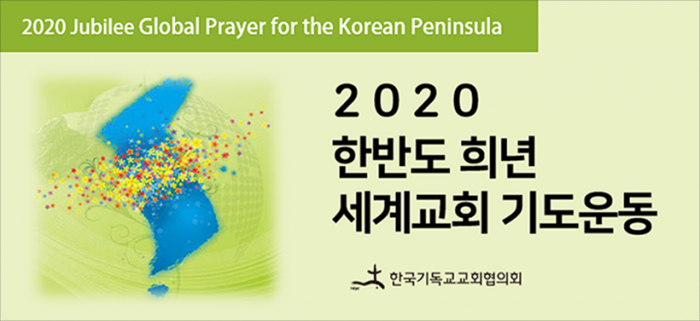
* Korean (Above) - English (Below)
4월 3주
증언3 '한 장기복역수의 마지막 편지'
- 신승민(Shin Seungmin) 목사, 한국기독교교회협의회(NCCK) 국장최인정씨는 1927년 북에서 태어났습니다. 그는 북의 최고 대학 중 한 곳에서 고등교육을 이수했으며 노동당원이 되어 정부 교통국에서 일했습니다. 최씨는 임기천과 결혼하여 4명의 자녀를 두었고, 1964년에 간첩으로 남쪽에 파견 될 때까지 행복한 가정을 꾸려 왔습니다. 그러나 남파된 지 이틀 만에 경찰에 체포되어, 1967년 간첩혐의로 기소되었습니다. 결국 그의 나이 61세인, 1988년 석방될 때까지 21년이라는 세월을 감옥에서 보냈습니다. 그러나 석방된 지 2년 만인 1990년, 그는 간암 말기 진단을 받았으며, 1년 동안의 투병 끝에 이듬해 1991년 11월 21일에 사망했습니다. 그가 사망하기 몇 달 전, 북에 있는 아내에게 공개 서한을 보냈습니다. 이 서한에서 그는 “내가 죽기 전 나의 유일한 바람은 당신과 우리 아이들을 보고 우리에게 일어난 모든 일에 대해 미안하다고 말하는 것입니다.”[1]고 말했습니다.
1991년 10월, 사망하기 한달 전에 최인정씨는 NCCK의 인권위원회에도 한 통의 편지를 보냈습니다. 그의 편지는 한반도 분단의 비극적인 상황을 나타내는 깊은 고통과 슬픔으로 가득 차 있었습니다. 인권위원회는 즉시 통일부에 연락하여 최씨와 그의 가족의 짧은 상봉을 요청했습니다. 다행히 통일부는 우리의 요청을 받아 들였고, 11월 20일까지 남북주민접촉신청서를 보내라고 통보했습니다. 이 신청서에서는 최씨 가족상봉은 12월 31일 판문점 공동경비구역에서 20-30분 동안 진행하는 것으로 되어 있었습니다. 나는 즉시 그에게 연락을 취했고, 그는 매우 기뻐했습니다. 드디어 11월 20일 그가 사는 대전에서 서울로 상경하여 같이 신청서를 통일부에 제출하기로 약속하였지만, 안타깝게도 간암이 악화되어 그 날 상경할 수 없었습니다. 그는 결국 다음 날 새벽 11월 21일 북의 가족을 갈망하면서 생을 마감하였습니다.
그의 사망 후 우리는 남쪽 정부에 그의 편지를 부인에게 넘겨달라고 호소했지만, 정부는 이산가족으로부터 수천 건의 유사한 요청에 직면하는 것을 두려워하면서 우리의 요청을 거부하였습니다. NCCK는 결국 세계교회협의회(WCC)의 도움으로 그의 아내에게 그 서한을 전달할 수 있었습니다.
[1] 박찬수, “북녘 가족 그리다 남쪽땅에 묻혀”, 1991년 11월 23일, 14면, 한겨레신문
Witness 3 'A Story of a Long-term Political Prisoner'
- Rev. Shin Seungmin, Director, NCCK
Choi In-Jung was born in North Korea in 1927. He completed his higher education in one of the best universities in North Korea, became a labor party member and worked with the government transportation department. He got married to Lim Ki-Chun and had four children. They made a happy family until he was dispatched to South Korea as a spy in 1964. Just two days after his arrival in the South he was arrested by the police and charged of espionage in 1967. He served 23 years’ prison term and was released in 1988. He was 61 years old when he was released, which meant that he spent many of his productive years in prison. But in 1990, just two years after his release, he was diagnosed with the last period of liver cancer. He struggled with the cancer for almost a year and died on November 21 in the following year. Just few months before his death, he wrote an open letter to his wife in North Korea, saying that “my only wish before I die is to see you and our children and say sorry to them about all what happened to us.”
On October, 1991 just a month before his death, Choi sent a letter to the Human Rights department of the NCCK with which I worked as an executive secretary. His letter was full of deep feelings of suffering and sorrow, representing the tragic situation of Korea’s division. My department immediately contacted the Unification Ministry of the South Korean government to request a short meeting between Choi and his family. Fortunately the Unification Ministry accepted our request and asked us to send an application form by November 20. The meeting was scheduled for 20-30 minutes on December 31 in the Joint Security Area of Panmunjom. I contacted Choi, and he was very excited and happy about the news and agreed to travel from his place to Seoul on November 20 to submit the application form. But unfortunately he could not make it because of his worsening sickness. On the following day, November 21, he died, longing for his family in North Korea.
After his death we appealed to the South Korean government to hand over his letter to his wife, but the government refused to do it, being afraid of facing thousands of similar requests from separated families in South Korea. As far as I remembered, we were eventually able to deliver his letter to his wife with the help of the World Council of Churches (WCC).
---
한국기독교교회협의회(NCCK)는 지난 68회 정기총회에서 “평화를 이루기까지 있는 힘을 다할 것”(시 34:14)을 다짐하고, 한국전쟁 발발 70년을 맞는 올해 2020년을 한반도에서 전쟁을 종식하고 평화협정을 실현하는 “희년의 해”로 선포하였습니다.
이 희년운동의 일환으로 세계교회협의회 (WCC)와 함께 3월 1일부터 8월 15일까지 “한반도평화를 위한 세계기도운동”을 전개하오니, 이번 주부터 매주 보내드리는 기도문 (혹은 신앙간증문)을 가지고 교회와 가정, 직장과 각 자의 삶의 자리에서 이 기도운동에 적극 참여하여 주시기 바랍니다.




